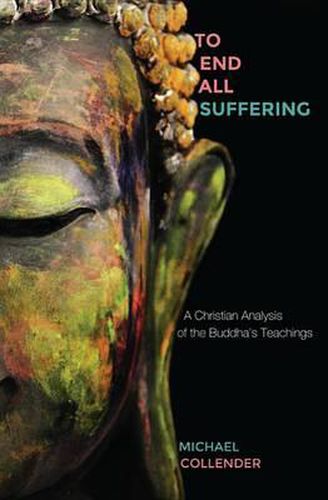Readings Newsletter
Become a Readings Member to make your shopping experience even easier.
Sign in or sign up for free!
You’re not far away from qualifying for FREE standard shipping within Australia
You’ve qualified for FREE standard shipping within Australia
The cart is loading…






Both Buddhism and the Christian gospel promise the ending of suffering. However, each defines and interprets morality, compassion, proof, and truth according to starkly different worldviews. This is why adjudicating rival claims between these religions has proven so difficult. Two alternate approaches have emerged: treating religious claims as mere personal opinions, or postulating some higher standard outside of religion to which each religion much submit. However, both of these approaches to comparative religious research implicitly deny that any religion can present a story about the totality of reality, including ultimate standards for proof and truth. This book takes a different approach entirely, demonstrating a way that religions can self-critically engage one another using their own respective standards. Within this framework, early Buddhist philosophy and the Christian faith enter into philosophical dialogue. In the process, To End All Suffering pointedly demonstrates that on its own terms, Buddhism cannot account for the very doctrines necessary to show that the Buddha’s teachings end suffering. Written primarily for Christians and Buddhists interested in interreligious dialogue, To End All Suffering is a course book suitable for individual study or for college or seminary courses in comparative philosophy or religion.
$9.00 standard shipping within Australia
FREE standard shipping within Australia for orders over $100.00
Express & International shipping calculated at checkout
Both Buddhism and the Christian gospel promise the ending of suffering. However, each defines and interprets morality, compassion, proof, and truth according to starkly different worldviews. This is why adjudicating rival claims between these religions has proven so difficult. Two alternate approaches have emerged: treating religious claims as mere personal opinions, or postulating some higher standard outside of religion to which each religion much submit. However, both of these approaches to comparative religious research implicitly deny that any religion can present a story about the totality of reality, including ultimate standards for proof and truth. This book takes a different approach entirely, demonstrating a way that religions can self-critically engage one another using their own respective standards. Within this framework, early Buddhist philosophy and the Christian faith enter into philosophical dialogue. In the process, To End All Suffering pointedly demonstrates that on its own terms, Buddhism cannot account for the very doctrines necessary to show that the Buddha’s teachings end suffering. Written primarily for Christians and Buddhists interested in interreligious dialogue, To End All Suffering is a course book suitable for individual study or for college or seminary courses in comparative philosophy or religion.